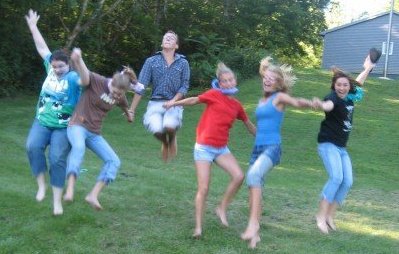During our House of Brigid training in May, Joy explained to all of us that the Irish take particular care with reverence for their deceased. Funerals are big-scale affairs, she said, and measures are taken at liturgies throughout the year to remember and respect members of the parish community who have passed away.
I doubted this. “The Irish” didn’t do or think or take care with anything as a unit, I declared to myself, because “the Irish” are a group of individuals who don’t base their lives around some national groupthink. Not all Americans believe in starred-and-striped lapel pins. Not all Irish people, I believed, would share a cultural interest in above-average respect for the dead. I was an American Studies major, and this is American Studies 101 material. Right? Irish people don’t do stuff just because they’re Irish any more than Americans do stuff because they’re American or tall people do stuff because they’re tall. Furthermore, taking particular care in reverencing the dead? How morbid!
This Sunday proved me, on both fronts, to be wrong.
Four and a half years ago, almost to the day, one of my dearest friends was killed by a drunk driver. I had lost family members before, the sad but long-expected losses of the elderly and ill, but I had never lost anyone like this. He should have been sitting in rehearsal somewhere biting his nails, or showing up to mass with his hair dyed some stupid color, or singing “Some Enchanted Evening” so powerfully that entire audiences wouldn’t notice that he screwed up every other word. He shouldn’t have been associated with words like “tragedy” or “funeral.”
But there was a tragedy, and there was a funeral. And, at the funeral, we sang David Haas’ “You Are Mine.” Have you ever really listened to the fourth verse of “You Are Mine”? Before May 15, 2010, I certainly had not.
“I am the Word that leads all to freedom.
I am the peace the world cannot give.
I will call your name, embracing all your pain.
Stand up, now, walk and live.”
Obviously, I spent the duration of this verse bawling my eyes out on that first day that its words finally reached my ears. And every time I have heard “You Are Mine” since that May day in 2010, I have bawled my way through the fourth verse. I’ve cried in the choir loft of the Basilica of the Sacred Heart. I’ve cried on the altar at my parish at home. Two days ago, I almost cried in front of everyone at Harold’s Cross.
“You Are Mine” was the offertory hymn at Harold’s Cross Parish’s 10:30 mass this Sunday. Luckily for everyone in church, we only got through two verses, so the waterworks stayed away for once. Even without singing verse four, though, hearing this song on that particular day found me deep in thought, about loss, about faith, and about my friend. As most of you know, Sunday was All Souls’ Day. It was also my friend’s birthday – what would have been his twenty-fifth. As we sang “You Are Mine,” I felt that I finally understood the Irish interest in reverencing the dead. We had a special celebration on All Souls’ Day for the members of the parish who had died in the past year, and it wasn’t morbid; it was life-giving. It allowed the parish community – members for decades who knew the face behind every name on the list of the dead, and new imports from America who knew no one on the list but had a lot of All Souls’ thoughts for a boy with sometimes-yellow hair and chewed-off fingernails – to come together in the comforting embrace of a God who calls us and leads us all to freedom. You don’t build community in such a way without occasionally thinking of the community members who are conspicuously, tragically absent.
I’m still wary of declarations that “all Irish people” do this or that. But, in a completely non-nationalistic sense, there is an enormous comfort in sharing a belief or a practice in a moment of tragedy – and the Irish people sure seem to have figured that out. We have all faced loss, and the distinctly Irish methods of showing special respect for those we’ve lost helps both us and our loved ones know peace – the peace the world cannot give.

